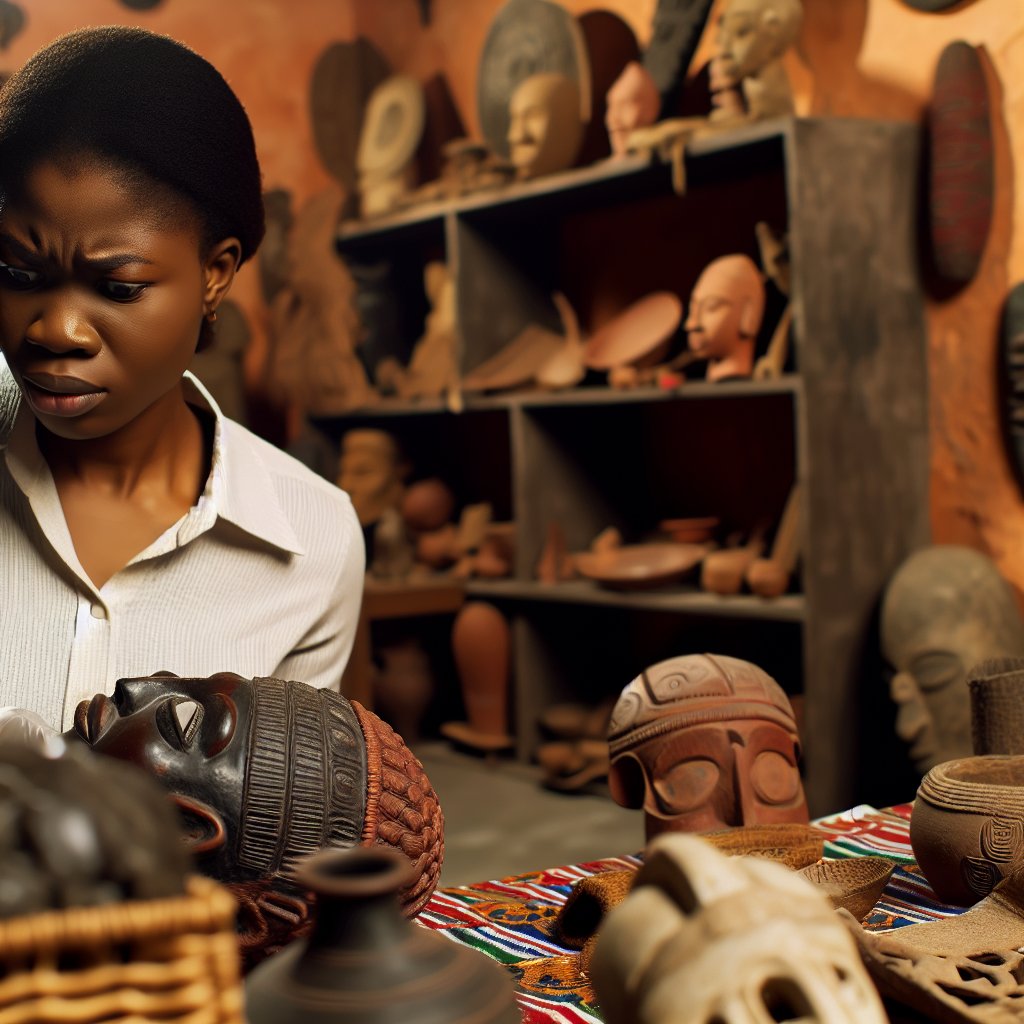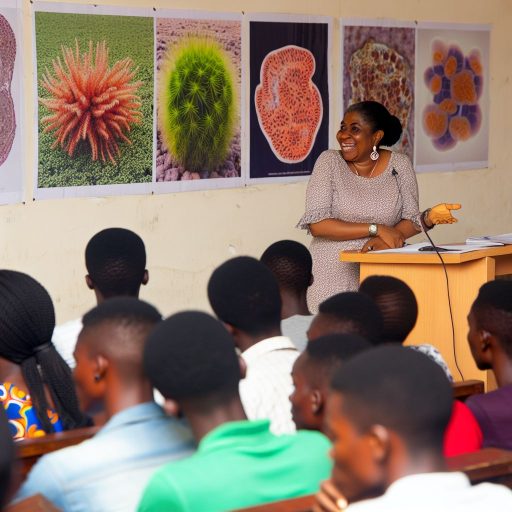Introduction
Anthropology in Nigeria has a rich history that has evolved over the years.
Studying this evolution is crucial to understanding society.
This blog post will delve into the various stages of anthropology in Nigeria.
It highlights its significance in shaping cultural perspectives.
Anthropology in Nigeria
Anthropology in Nigeria has a rich history that dates back to the early beginnings when British anthropologists played a significant role in shaping the field in the country.
Early Beginnings of Anthropology in Nigeria
Anthropology as a discipline emerged in Nigeria during the colonial era when British anthropologists conducted studies on Nigerian societies and cultures.
One of the primary focuses of early anthropology in Nigeria was to study the diverse ethnic groups and traditional practices of the indigenous peoples.
Colonial Era and Influence of British Anthropologists
During the colonial era, British anthropologists such as Northcote Thomas and M. D. W. Jeffreys had a profound influence on the development of anthropology in Nigeria.
They conducted ethnographic research and collected valuable data on the social organization, belief systems, and customs of various Nigerian communities.
Key Figures and Their Contributions
- Northcote Thomas: Thomas conducted extensive fieldwork in Nigeria, documenting traditional Nigerian cultures and collecting artifacts that are now preserved in museums.
- M. D. W. Jeffreys: Jeffreys’s research focused on the Hausa and Fulani peoples of Northern Nigeria, providing valuable insights into their social structure and religious practices.
Utilization of Anthropology in Studying Nigerian Societies and Cultures
Anthropology played a crucial role in studying Nigerian societies and cultures during this time by providing a framework for understanding the diversity and complexity of the country’s ethnic groups.
It helped shed light on issues such as kinship systems, political organization, religious beliefs, and artistic expressions of the Nigerian people.
The early beginnings of anthropology in Nigeria laid a strong foundation for the development of the field in the country.
British anthropologists played a pivotal role in shaping the direction of anthropological research in Nigeria and contributed significantly to our understanding of Nigerian societies and cultures.
Establishment of academic institutions and departments
In the early days, anthropology departments were not common in Nigerian universities.
As the field gained recognition, various universities started establishing anthropology departments.
This move was crucial in promoting the study and research of anthropology within the country.
Nigerian scholars played a significant role in advocating for the establishment of these departments.
They saw the importance of having dedicated spaces for the study of anthropology.
By having these departments, students and researchers could delve deeper into the field.
The departments provided a platform for knowledge exchange and collaboration among scholars.
They also facilitated the training of future anthropologists within the Nigerian context.
Role of Nigerian scholars in the development of anthropology
Nigerian scholars have been instrumental in shaping the development of anthropology in the country.
They have contributed to the body of knowledge through their research and publications.
Their work has helped in advancing the field and addressing local anthropological issues.
Nigerian scholars have also played a role in bridging the gap between local and global anthropological perspectives.
By incorporating indigenous knowledge systems, they have enriched the discipline of anthropology.
Their efforts have contributed to a more inclusive and diverse anthropology landscape in Nigeria.
Nigerian scholars continue to inspire the next generation of anthropologists through their work.
Their dedication and passion for the field have been key in fostering its growth and relevance.
Significant milestones and achievements in the field
Over the years, anthropology in Nigeria has witnessed several milestones and achievements.
One significant milestone was the establishment of the first anthropology department in a Nigerian university.
This marked a turning point in the recognition and institutionalization of anthropology within the academic sphere.
Another milestone was the formation of professional anthropological associations in Nigeria.
These associations have provided a platform for networking, collaboration, and scholarly exchange.
Nigerian anthropologists have also made notable contributions to international anthropological conferences and publications.
Their work has been recognized and cited globally, further enhancing the reputation of Nigerian anthropology.
The field continues to evolve, with new research areas and methodologies being explored in Nigeria.
You Might Also Like: How Archaeology Influences Nigerian Tourism
Fieldwork and Research in Nigerian Anthropology
Fieldwork is a fundamental aspect of anthropological research in Nigeria.
It allows anthropologists to study societies firsthand.
Transform Your Career with Expert Guidance
Get personalized mentorship consulting that’s tailored to your unique path. Our expert advice is actionable and exclusive.
Get StartedThrough fieldwork, researchers can immerse themselves in the everyday lives of Nigerian people.
This immersion helps them gain insights into their beliefs, practices, and social structures.
Fieldwork in Nigerian anthropology serves as a vital tool for collecting data.
It involves conducting observations and engaging with local communities.
This approach provides a unique opportunity to explore cultural diversity, dynamics, and complexities.
Importance of Fieldwork in Anthropological Research in Nigeria
Fieldwork is essential in Nigerian anthropology because it allows researchers to develop a deep understanding of cultural practices.
Living among the people they study helps anthropologists gain valuable insights into the nuances of Nigerian societies.
Furthermore, fieldwork provides an avenue for building relationships with local communities.
This fosters trust and facilitates knowledge sharing.
This collaborative approach is crucial for conducting ethical and culturally sensitive research in Nigeria.
Major Research Projects Conducted by Nigerian Anthropologists
Over the years, Nigerian anthropologists have conducted numerous research projects.
These projects have significantly contributed to the field of anthropology.
Some major research projects include studies on kinship systems, religious practices, gender roles, and economic structures.
One notable project focused on the impact of globalization on traditional cultural practices.
This study examined how globalization processes have influenced social norms, values, and identities.
These influences affect different ethnic groups in the country.
Contribution of Research Findings to the Understanding of Nigerian Societies and Cultures
The research findings of Nigerian anthropologists have played a crucial role in enhancing our understanding of Nigerian societies.
They have documented and analyzed various aspects of Nigerian life.
This work sheds light on the diversity and richness of the country’s cultural heritage.
Additionally, research findings have helped challenge stereotypes and misconceptions.
They offer new perspectives on social issues, identities, and cultural practices.
By engaging with local communities and listening to their voices, anthropologists provide valuable insights.
These insights enrich our knowledge of Nigeria.
Fieldwork and research in Nigerian anthropology continue to be essential.
They deepen our understanding of the complexities and dynamics of Nigerian societies.
Culturally sensitive research practices help Nigerian anthropologists make significant contributions.
They shape our knowledge of diverse cultures and societies.
You Might Also Like: Notable Nigerian Anthropologists and Their Works
Challenges and Controversies in Nigerian Anthropology
-
Anthropologists in Nigeria face challenges like lack of funding and resources.
-
There are controversies and debates within the field of anthropology in Nigeria.
-
These challenges have significantly impacted the discipline’s development in the country.
Addressing Challenges Faced by Anthropologists
One of the most significant challenges that anthropologists in Nigeria face is the lack of funding and resources.
This lack of financial support makes it difficult for researchers to conduct fieldwork, analyze data, and disseminate their findings.
Without proper funding, anthropologists struggle to make meaningful contributions to the understanding of Nigerian culture, society, and history.
Additionally, the limited availability of resources such as libraries, archives, and research institutions further hinders the progress of anthropological research in Nigeria.
Researchers often have to rely on outdated or incomplete data, which can compromise the quality and reliability of their work.
Moreover, the absence of a strong network of academic and professional support can isolate anthropologists in Nigeria.
This isolation makes it challenging to collaborate with colleagues, publish their work in reputable journals, or access training and development opportunities.
Exploring Controversies and Debates in Nigerian Anthropology
Within the field of anthropology in Nigeria, there are ongoing controversies and debates that shape the direction of research and scholarship.
These controversies can revolve around issues such as ethical considerations in fieldwork, the representation of marginalized communities, or the interpretation of cultural practices.
One of the most debated topics in Nigerian anthropology is the role of tradition and modernity in shaping social dynamics and identity.
Anthropologists often grapple with questions about how traditional beliefs and practices interact with globalization, urbanization, and technological advancements to influence contemporary Nigerian society.
Another controversial issue in Nigerian anthropology is the decolonization of research methodologies and theories.
Many scholars argue that anthropological knowledge production in Nigeria has been historically shaped by colonial legacies and Western perspectives.
This has led to bias, misrepresentation, and cultural appropriation in academic work.
Impact of Challenges on the Development of Anthropology in Nigeria
The challenges faced by anthropologists in Nigeria have had a profound impact on the development of the discipline in the country.
Without adequate funding, resources, and support, researchers struggle to conduct rigorous and comprehensive studies.
These studies contribute to the advancement of knowledge about Nigerian culture, society, and history.
Furthermore, the controversies and debates within Nigerian anthropology can hinder collaboration, knowledge exchange, and critical reflection within the discipline.
This lack of scholarly discourse and intellectual engagement can limit the innovation, diversity, and relevance of anthropological research in Nigeria.
Addressing the challenges and controversies in Nigerian anthropology is essential for fostering a vibrant scholarly community.
This community can generate new insights, perspectives, and understandings of Nigerian society.
By investing in funding, resources, and collaboration, anthropologists in Nigeria can overcome these challenges.
They can contribute meaningfully to the development of the discipline.
You Might Also Like: The Future of Chemical Sciences in Nigeria

Contributions to Nigerian society
Anthropology has played a significant role in the development of Nigerian society.
It provides valuable insights into the country’s diverse culture and social dynamics.
Examine the ways in which anthropology has contributed to the development of Nigerian society
- Anthropologists have conducted research on various ethnic groups in Nigeria, helping to preserve their cultural heritage.
- Through ethnographic studies, anthropologists have documented traditional practices and rituals that are essential to Nigerian identity.
- Anthropological research has shed light on social issues such as gender inequality, ethnicity conflicts, and political unrest in Nigeria.
Discuss how anthropological knowledge has been used to address social and cultural issues in Nigeria
- Anthropologists have collaborated with local communities to develop sustainable solutions to social problems in Nigeria.
- By studying Nigerian societies, anthropologists have provided policymakers with valuable insights to address issues such as healthcare and education.
- Anthropological research has informed the design of development projects that promote social inclusion and cultural diversity in Nigeria.
Highlight the role of anthropologists in shaping public policy and promoting cultural heritage in the country
- Anthropologists have advised government agencies on cultural preservation policies that promote the protection of Nigeria’s cultural heritage.
- By participating in public debates, anthropologists have raised awareness about the importance of cultural diversity in Nigerian society.
- Anthropologists have advocated for the recognition and inclusion of indigenous knowledge systems in national development efforts in Nigeria.
Anthropology has made significant contributions to Nigerian society.
It provides valuable insights into its culture and social dynamics.
It addresses critical social and cultural issues.
Furthermore, it shapes public policy to promote cultural heritage in the country.
Find Out More: The Nok Culture: Nigeria’s Ancient Civilization
Understanding Anthropology’s Journey in Nigeria
The history and evolution of anthropology in Nigeria have been marked by significant milestones.
From its colonial roots to its current interdisciplinary nature, this field has grown in complexity.
Studying this history allows us to understand the development of anthropological thought in Nigeria and its impact on society.
This study also sheds light on the challenges faced by anthropologists in the past and present.
Furthermore, exploring the evolution of anthropology in Nigeria helps us appreciate the rich cultural heritage of the country.
Additionally, the diverse ways in which anthropologists have engaged with this heritage are worth examining.
For those interested in delving deeper into this topic, recommendations for further reading include works by Nigerian anthropologists.
Notable authors include Bolaji Ajenifuja and Adigun A. Brescia.
Additionally, exploring the role of anthropology in contemporary Nigerian society through academic journals can provide valuable insights.
The history and evolution of anthropology in Nigeria offer a unique perspective on the country’s cultural landscape.
This provides a foundation for future research and study in this field.
Additional Resources
Bioethics education in Nigeria and West Africa: historical beginnings …




